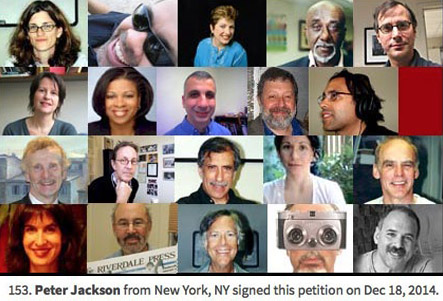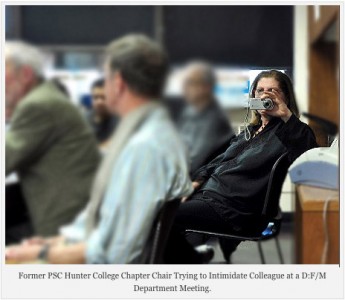

Edited for style:
The assistant editor who wrote the story laid out some ideas for discussion.
1) What the HWB Does for Employers
Probably because of the bullying I’ve experienced at Hunter, I’ve focused on the bill’s punitive consequences for abusive workplace behavior and overlooked how it could actually help “conscientious” businesses and colleges improve their work environments. I know if I ever get asked to write op-eds, that’s one of the things I would try to make clear, that the bill has pro-business features.
That it won’t necessarily be like laws already on the books regarding employment discrimination which focus on financial, economic penalties. I don’t think that message is out there as much as it should be. The Daily News and the NY Post a few years ago published articles that the bill was anti-business but that’s not true.
2) What the HWB Does for Workers
I think the therapeutic solutions for abused workers will result not from bullies being intimidated or wising up to clean up their acts because of the law. The bullies I have to deal with are psychologically disposed to creating harm and pain. And my statement is based on a lot of research on workplace bullying and that research describe many bullies as psychopaths and sociopaths and those are people with serious psychiatric disorders.
But their superiors can be held accountable for what takes place and that there are penalties and those are for real. Plus the added factor, that the abused employee can sue his or her abuser directly, provided they have corroboration of the abuse. That’s one of the features of the bill I really like because it provides a means for a worker to get redress without depending on a lawyer – that can cost money – or an union. Especially unions. On my campus, one of the biggest bullies has been an union rep. And there are lots of postings on the Facebook page of the New York Healthy Workplace Advocate about union subterfuge.
3) Why not simply allow voluntary employer efforts to Stop Bullying?
Nope, won’t work. For example, collegial, collegiality. Those values are suppose to be at the heart of campus life. But the reality is more like steel knuckles concealed in a glove manipulated to look like velvet.
The research shows that voluntary efforts to end workplace bullying don’t work in the workplace. Where I teach, there is little discussion about bullying despite articles in the NY Times and Chronicle of Higher Education about the Hunter President being a bully, or, I guess I better say, alleged bully or alluding to her being a bully. And that goes for the gossip flowing through the Hunter networking grapevine.
But you can’t even get Hunterites to even acknowledge publicly in small circle or in academic forums like the College Senate and this faculty organization called the Faculty Delegate Assembly that there is a problem. Those should be the places of influence to address academic bullying and they won’t. And if you can’t talk about it, how can you even begin to discuss ways to do something voluntarily.
A professor at a CUNY college in Queens told me that she contacted CUNY’s Office of the General Counsel for Legal Affairs because she and others wanted an anti-bullying policy for their school and was told that CUNY won’t support a position like that, that the University was waiting to see what happens to the healthy workplace bill.
4) Employers Have Had Years to Comply.
Absolutely. I like your, “Employers did not voluntarily decide to curb harassment for the sake of workers’ health and dignity. Laws made them do it. The record is clear.” I can’t say anything better than that.
I love this snippet of yours quoting Littler Mendelson, “… the country was built by mean, aggressive sons of bitches.” Actually, mean aggressive sons of bitches keep screwing up the promise of America built on the backs of hard working men and women. Psychologically injured employees can’t wait for a voluntary anti-bullying movement as you clearly demonstrate. And we all know that psychological damage leads to harmful health consequences for both the bullied and their families.
I really love that you and your editors are going to publish a story about this.
Best,
Gregg Morris

Hee Haw

D:F/M staff members have been require to feed the meters where this car is parked.